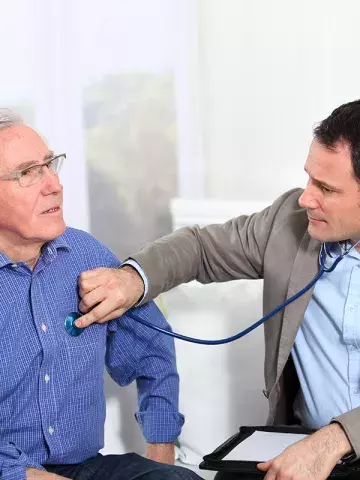Increased risk of cancer-related cardiovascular disease in older adults
By Melanie Hinze
Australian and US researchers have found that the incidence of cardiovascular disease (CVD) is increased in older adults with cancer, particularly among those with metastatic, haematological and lung cancer and after chemotherapy.
The researchers conducted a secondary analysis using data from the Aspirin in Reducing Events in the Elderly (ASPREE) trial, which was a randomised, double-blind, placebo-controlled, multi-institution clinical trial designed to investigate whether daily low-dose aspirin prolonged disability-free survival in healthy older people.
The secondary analysis, published in Cancer, aimed to investigate the impact of cancer and cancer treatment on a composite CVD endpoint comprising hospitalisation for heart failure, myocardial infarction and stroke in community-dwelling individuals aged at least 70 years (or 65 years and over for US minorities).
Of 15,454 participants without pre-trial cancer, 1392 had an incident cancer diagnosis during follow up. Rates of CVD were found to be roughly doubled among those with an incident cancer diagnosis compared with participants who were cancer-free (20.8 vs 10.3 events per 1000 person years, respectively). An increased incidence was seen for myocardial infarction, hospitalisation for heart failure and stroke. However, aspirin use was not seen to impact CVD rates.
The researchers found that CVD risk was greatest soon after an incidence of cancer diagnosis, and that it remained elevated relative to the total cohort and the cancer-free group across the four-year follow-up period.
Study author, Dr Suzanne Orchard, Senior Research Fellow, Chronic Disease & Ageing, at Monash University, Melbourne, said the main implications of this research was the impact of cancer-related CVD mortality.
‘Our study revealed that all individuals diagnosed with cancer are at elevated risk of cancer-related CVD, not just those who are receiving known cardiotoxic cancer therapies, and so cardiac health should be monitored in all cancer patients’, she told Medicine Today.
Cancer-related CVD could be managed, and even prevented, she said, by including a few additional measures into routine care, such as ensuring shared risk factors were well controlled (e.g. hypertension, diabetes, weight, etc.), cancer treatments were well tolerated (and changed if not), cardiac health was monitored regularly (before and during treatment) and basic exercise was maintained (e.g. walking and swimming).


